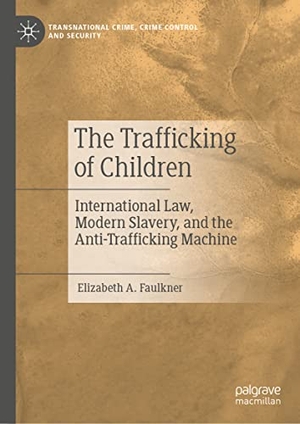Für statistische Zwecke und um bestmögliche Funktionalität zu bieten, speichert diese Website Cookies auf Ihrem Gerät. Das Speichern von Cookies kann in den Browser-Einstellungen deaktiviert werden. Wenn Sie die Website weiter nutzen, stimmen Sie der Verwendung von Cookies zu.
Cookie akzeptieren
Elizabeth A. Faulkner
The Trafficking of Children
- Springer International Publishing
- 2023
- Gebunden
- 380 Seiten
- ISBN 9783031235658
The phenomenon of child trafficking holds a unique position as an issue of significant contemporary relevance, occupying a principal place in debates about human rights today. The interchangeable terms trafficking and modern slavery evoke emotive responses and proclamations about abolition of contemporary ills, viewed as the ultimate aberration when a child is involved. The classification of children under legal frameworks marks them as different, as ¿other¿, and in the context of laws implemented to address trafficking, slavery, and children on the move more generally, this distinction is complicated. This book charts the emergence, decline and re-emergence of child trafficking law and policy during the twentieth and
Mehr
Weniger
zzgl. Versand
in Kürze